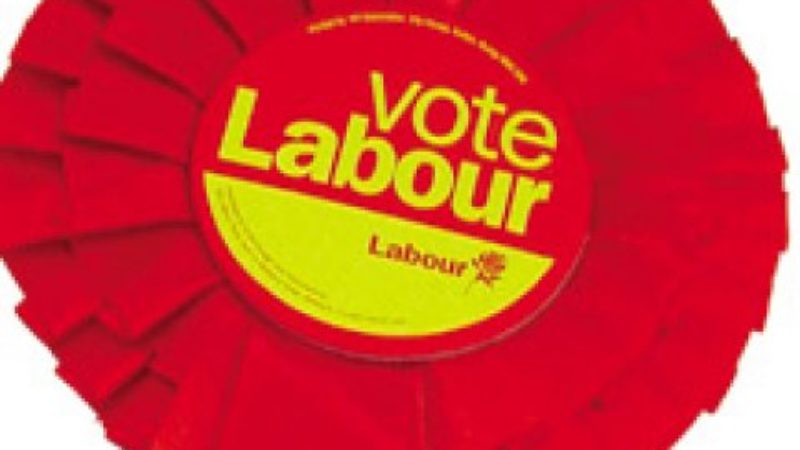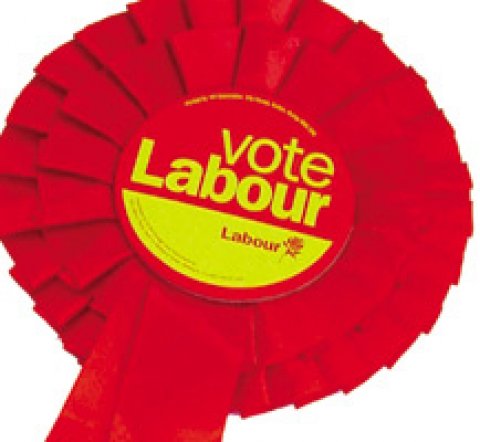
There was a flurry of panicky tweets early last week when Labour’s poll lead dipped to 3 points with ICM and YouGov. These were from a mixture of good Labour people who are genuinely nervous about the party’s prospects, and professional commentators who would have egg on their face if Ed Miliband becomes PM because they have talked him down so much, so are looking for polls that confirm their gloomy prognosis.
In the event the “dip” turned out to be a 24 hour wonder, or perhaps just sampling error, as no fewer than seven different opinion polls have been published in the last four days, all showing better Labour leads than the rogue two, with Ipsos Mori showing a lead of 9% – this from a pollster who had the two main parties level-pegging in October.
The general trend over the last year is that Labour’s lead is gently going downwards, which is to be expected given both the start of an economic recovery and the usual pattern of government recovery after the mid-term, as any government will try to take the most unpopular decisions during the period furthest from an election.
But there are a number of factors that lead me to be to think that whilst the General Election is going to be close fought, Labour is still set to be at least the largest party and has a good chance of an overall majority:

1. The negatives that pessimists raise are already factored into the current poll figures. Yes, Ed Miliband is seen less positively than the party as a whole (with the opposite being true of David Cameron and his party) and voters are optimistic about the wider economy (as opposed to their own household finances), but both these questions get asked at the same time, to the same people, as voting intention questions, and the same voters still give Labour a lead.
2. Labour doesn’t actually need an opinion poll lead to win the General Election. Differential turnout and distribution of votes round the country means that a dead heat on 35% each, the worst poll finding in the whole of 2013, would leave Labour just 3 seats short of a majority and 38 seats ahead of the Tories. This is because the Tories pile up majorities in high-turnout, safe rural seats, which is of no help in a First-Past-the-Post voting system. This may be unfair, but it’s the system the Tories campaigned to keep in the 2011 referendum.
3. Labour is doing better in the key marginal seats that will decide the election than in the national polls, according to both the individual seat polls commissioned by UKIP and Lord Ashcroft’s mega-polls of voters in marginals.
4. The fundamental strategic shift that will probably determine the outcome of the 2015 General Election occurred in May 2010 when a large slice of the 2010 Lib Dem vote switched to Labour in disgust at a party they had been sold as being to Labour’s left going into coalition with the Tories. Short of the Lib Dems collapsing the Coalition and putting Ed Miliband into 10 Downing Street before the General Election, nothing is going to happen that will shift these people back to the Lib Dems. And they are certainly not going to vote Tory. This group of voters appears to be the most enthusiastic about voting, and voting Labour, of any in the electorate. Their realignment to Labour by itself puts us within spitting distance of winning.
5. Four party politics with UKIP as a major player means that the vote share needed to win is lower than in 2010. UKIP probably won’t get the highest shares they have had in polls in a General Election, but they will get substantially more votes than in 2010, from a variety of sources including non-voters, but hitting the Tories more than Labour by at least a 2:1 margin. My personal guess is that UKIP will get 6-8% of the vote (compared to 3% last time) and at least two parliamentary seats. The threat from them in previously safe Tory seats will panic the affected MPs and play havoc with allocation of campaigners and cash by the Tories. It could also throw a number of long-shot seats back into play for Labour by splitting the anti-Labour vote. Between now and the General Election the 22nd May Euro Elections mean UKIP will remain the big political story, with momentum renewed from fighting what is their best set of national elections, and the Tories thrown into further internal turmoil as a result. Whilst Labour just has to be itself to keep the defectors from the Lib Dems, the Tories can’t reposition themselves to win back UKIP defectors without adopting a harshness of tone that will alienate centrist voters.
6. Whilst the rise of UKIP may be partly reversed, it must mean that the Tories can’t do better than they did in 2010 when they got 36% of the vote. Where would any new Tory voters come from? And so one of Labour’s tasks, beating them on vote share, becomes easier. Ditto, locally in each marginal seat.
7. The movement since 2010 has mainly been between the Lib Dems and Labour and the Tories and UKIP. There hasn’t been much direct shift from Con to Lab. This sounds bad but it also means that there is minimal scope for traditional swing back to the Tories between now and polling day i.e. the share Labour has is a lot more solid than at similar stages in previous periods in opposition because it consists almost entirely of people with zero propensity to vote Conservative.
8. Don’t get sucked into making silly comparisons with the run-up to 1992 or 1997. Labour’s inflated mega-leads in opinion polls then were in a period when there wasn’t a major fourth party and when polling methodology was completely different and fundamentally flawed because it didn’t take enough account of differential propensity to turnout or people embarrassed to say they were Tory. 2015 is going to be a sui generis election because of the coalition so park all the historical analogies.
So my advice is, read the polls, but read all of them over a period of time. Don’t panic and keep canvassing – the most useful way you can react to a bad poll is not to tweet about it but to give more help to your nearest target marginal constituency.




More from LabourList
Almost half of Labour members oppose plans to restrict jury trials, poll finds
‘How Labour can finally fix Britain’s 5G problem’
‘The University of the Air – celebrating 60 years of Harold Wilson and Jennie Lee’s vision’